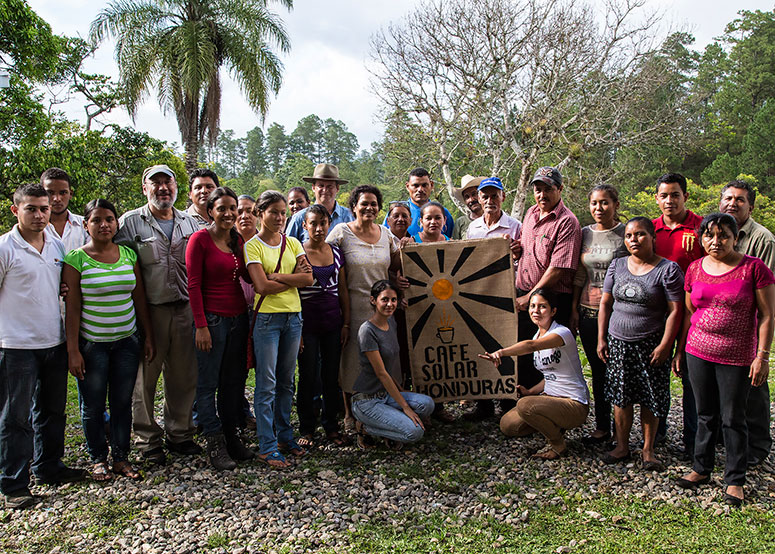National Science Foundation to Fund Multi-Disciplinary Research of Cafe Solar®’s “Yoro Model”

The research coalition will model the impact of Cafe Solar®’s clean technology and forest-restoring coffee cultivation on watersheds, forest, and livelihoods in order to guide its scale-up. The National Science Foundation (NSF) is funding the Cafe Solar® program to the tune of $3.4 million.
It’s all part of NSF’s Growing Convergence Research Project focused on designing a sustainable agricultural production system. The Cafe Solar® sustainable innovations being funded include: renewable energy dryers, clean wet mills that recycle coffee pulp and reduce water pollution, and coffee farmers that are compensated with carbon credits for preserving forest on their lands.
“The resulting system produces high-quality coffee, restores and conserves high-elevation forest critical to healthy watersheds, biodiversity (including migratory birds), while enhancing employment and revenues critical for community stability,” says Richard Trubey, director of program development at Mesoamerican Development Institute (MDI).
“This funding couldn’t come at a more needed time, as coffee is driving deforestation and threatening national parks, and the business as usual approach combined with the pandemic is causing many coffee farmers and skilled local youth to seek alternative sources of income and even risk emigrating to the United States,” Richard adds, “We need these farmers and talented young women and men, just as much as a development program of this nature needs major upfront financial investment to move it forward until the model becomes self-sustaining.”
The money will allow MDI to continue funding local researchers, and to further develop the higher education of the Honduran researchers. The research will aid the production of Cafe Solar® coffee, in an effort to help satisfy the global need for low carbon (and net zero) coffee supply chains.
Scientists Cooperating to Address Climate Change via Coffee
This NSF Growing Convergence Research Project brings together conservation biologists, ecologists, agronomists, farmers, indigenous peoples, economists, social scientists, land managers, and engineers to co-design and implement a system for sustainable coffee production.
The $3.4 million project includes Tulane University; the University of Massachusetts, Amherst; University of North Carolina; and Indiana University of Pennsylvania.
Convergence research is a means of solving vexing research problems, in particular, complex problems focusing on societal needs. It entails integrating knowledge, methods, and expertise from different disciplines and forming novel frameworks to catalyze scientific discovery and innovation.
